
Official Edgar Rice Burroughs Tribute Weekly Webzine Site Since 1996 ~ 15,000 Web Pages In Archive Volume 3948 |

Official Edgar Rice Burroughs Tribute Weekly Webzine Site Since 1996 ~ 15,000 Web Pages In Archive Volume 3948 |

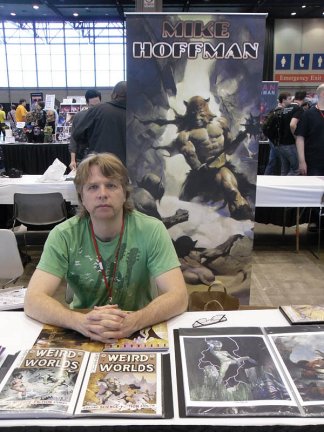
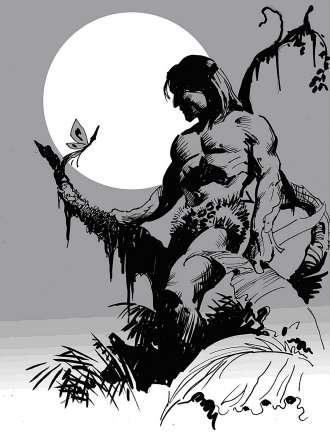
As a fictional character, Tarzan stands in stark contrast against modern Man. Whereas Tarzan is fully integrated into the natural world of the Jungle, today's man only sees it from afar, as if through the wrong end of a microscope, as something outside himself, to be studied and probed with his Intellect and judged by his ego for whatever technologic or monetary profits it may yield.Authentic feral children have not as yet displayed many of the character traits of Edgar Rice Burroughs's Tarzan, although we cannot be absolutely sure due to their apparent limitations of language and therefore thought. But it has been shown that they live fairly effortlessly in Nature compared to us, oblivious, for example, to our arguably paranoid notions about shelter and cold.
Amazonian tribes today who have been insulated from modern civilization, and some Australian Aborigines, for example, function within their environments and know its flora and fauna intimately. In comparison, we know something about the flora in our gut only as it relates to our health and therefore our ability to contribute to the prevailing economic system, and we understand in generalities a few things about the Earth's lifeforms as they appear on the other side of the glass of our video screens. But as a rule we live in a severe state of near-complete disconnection from other lifeforms.
What we have failed to understand, or even feel, is that Nature does not stop at the edge of a TV screen, or at the outlying parts of our bodies, because Nature is our bodies. And we deny this truth at our own peril. Ours is an age of chronic ill-health, and everyone knows someone who suffers from its characteristic ailments: high blood pressure, diabetes, cancer, obesity, depression and so on. Could Tarzan ever be "depressed"?
Certainly Tarzan had emotions and could feel sadness and loss, but to create depression he would have to become a full-time astronaut completely disconnected from the Earth - exactly what we have become through our technologically-based lifestyles. And why so much illness, and so little cure? What is at the core of this epidemic of sickness that grows and grows no matter how much money and science we hurl at it? And how can a fictional character 100 years old realistically help us? Is Tarzan today obsolete -- as ridiculous a figure as George of the Jungle?
Today, our predicament is that we become sick because we deny ourselves, our core natures, as a part of greater Nature. When we use electric lights to artificially extend the length of the day, our minds may know it is night, but our bodies -- and our endocrine systems and other light-sensitive cellular machineries -- think that the longer days mean Summer. And what is typically mammalian behaviour in Summer? To gorge on as much carbohydrates and sugars as possible to put on fat for the coming Winter.
But today, for us, that "Winter" never comes, but the gorging goes on unabated year-round. Grocery stores sell "low-fat" foods which still make us fat due to their high carb/sugar content. A bear, for example, ready for hibernation, exhibits all the symptomology of modern man's ill health: high blood pressure, high cholesterol, pre-cancerous tissues, obesity, stress, depression and so on. These "feast" traits all vanish after the "famine" of Winter, and the animal is healthy once more and ready to begin the cycle again.
We also are animals, and it is informative that animals in Nature do not get get cancer or diabetes, and they don't need to eat "low-fat" or jog to "keep their heart-rates up". But our animals, our pets and most livestock, do get our diseases -- and why? Because they live with us, eat our food, and bask in our artificially long days.
Most if not all these problems can be solved by re-synchronizing our bodies with the Sun, waking and sleeping within the daynight cycle, and cutting out most carbohydrates and sugars. That is, eating and behaving like cavemen, or more singularly, like Tarzans.
The other option is to continue on our present course of disconnection and sickness, in which the human organism basically evolves into a new form, a form that cannot connect with the natural world, cannot feed properly and cannot reproduce, because it is converting to a state of deadness. Because, when Nature has no need for an animal, it kills it. And the Nature in our bodies has decided that we are no longer necessary to it/ourselves and therefore we must die.
And we are doing all we can to help the process along.
My own experience with Tarzan started long ago with a Sunday afternoon movie on television in the mid-1960s. I remember African natives being lashed to tied-down trees and then being torn in half alive as the ropes were cut and the bent-over trees released. As a child I squirmed over that crotch-ripping horror. But my next exposure was far more sedate -- an abridged version of Tarzan of the Apes as published by the Whitman company. I read it voraciously and spent hours studying its colorfully green cover artwork with its idealization of Tarzan, who I thought resembled my father only with hair on top.
Most recently I re-read Irwin Porges' entire Edgar Rice Burroughs biography and Phillip Jose Farmer's excellent Tarzan Alive. With both of these books and some of the preceding elements of this essay in mind I dove into the green "jungle" of South Carolina for a two-and-a-half month vacation, spending as much time as possible synchronized with the Sun and Moon, living on "caveman" food like nuts, berries, fruit and meat, sleeping in a cave (my van) and wandering the river's edge in the heat.
What I found out there, alone and solitary like a real-life Tarzan, was an experience that didn't require words or intellectual explanation; as I watched groups of buzzards scouring the shores for food, I saw them not as part of a Wild Kingdom TV program but respectfully as my competitors for a limited food supply. Animals like butterflies and baby turtles that were not in competition were seen with wonder and reverence, and like the plant life all around, not as separate selves but as all as part of a tapestry of Life at which I was the thoughtful and meditative center.
Even as I later returned North to Wisconsin to reunite with my wife and children, driving hungrily past horrid and garish fast-food restaurants on the highway, I began instinctively looking at birds, possible fish in rivers, and even roadkill as sustenance. At rest stops I saw people's pets and wanted to eat them. I was returning to the Winter Land of the North, like some sun-browned Ice-Age cave man back from the hunt carrying nourishment for his family.
But while I was in those hot jungles of the South, where not another living man or woman was in sight, at those times I felt - and I could only express it in one way -- that I was Tarzan.
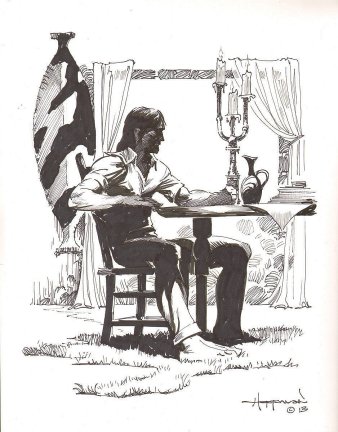
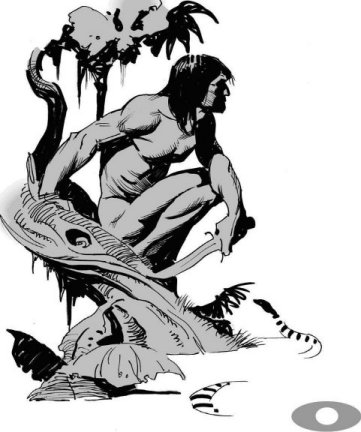 .
.
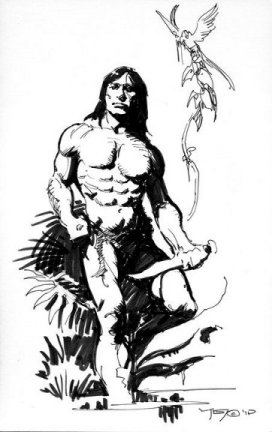
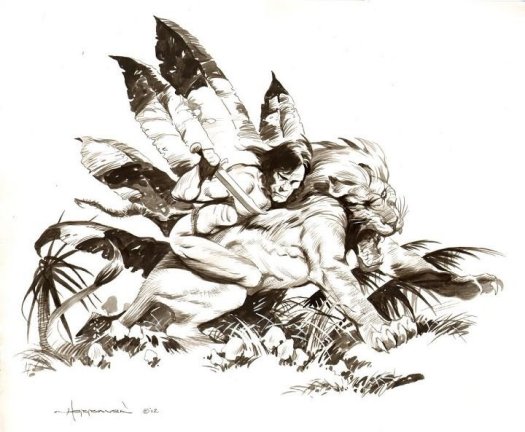
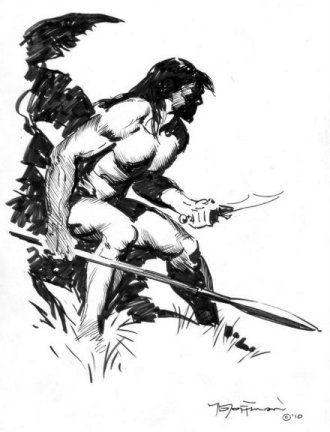 .
.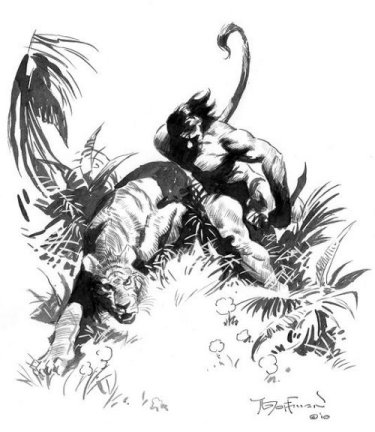
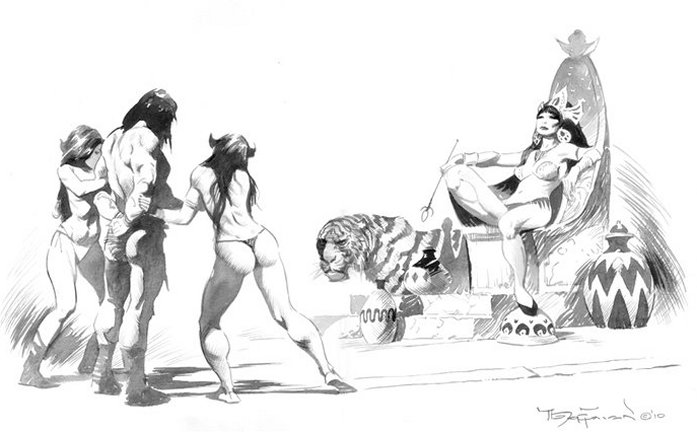
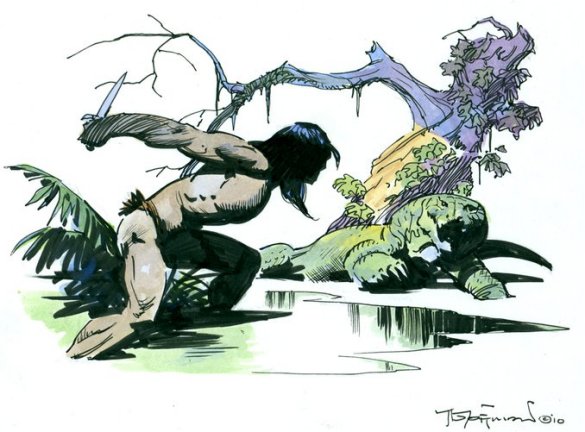 .
.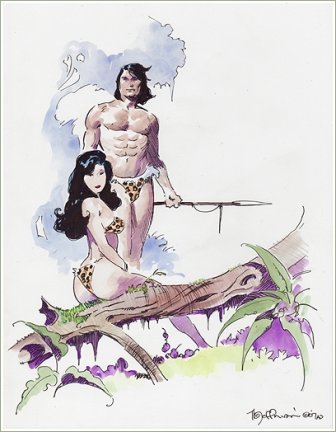
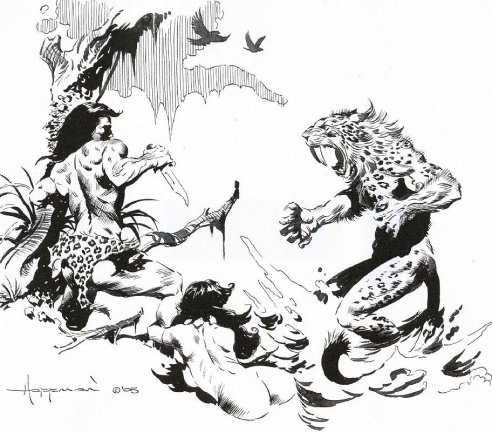 .
.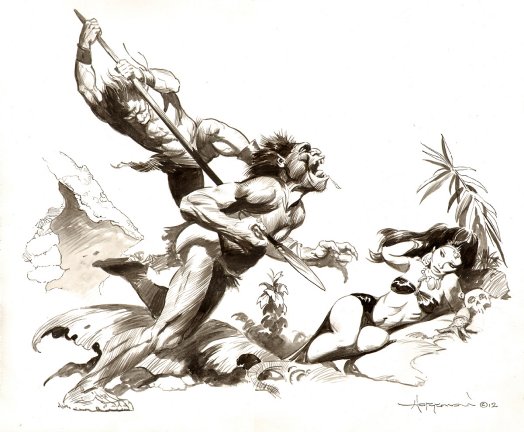
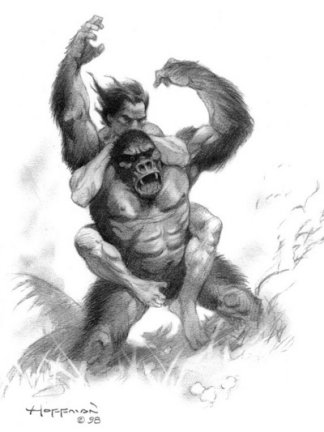 .
.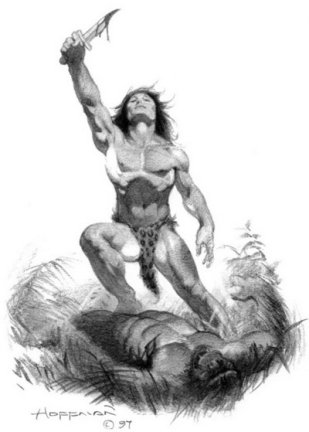 .
.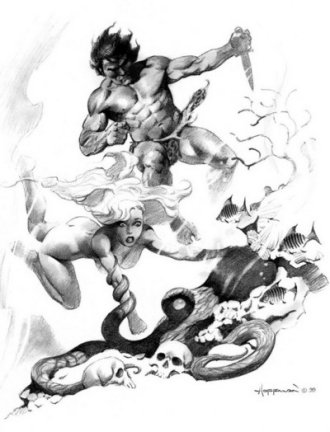
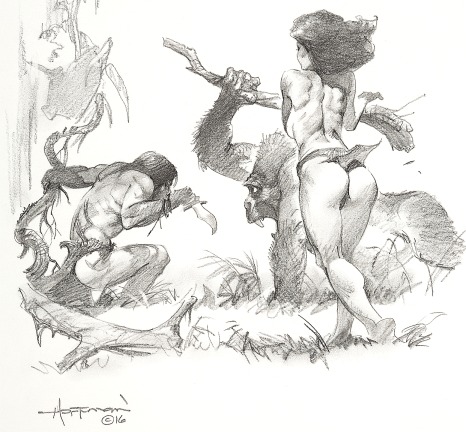
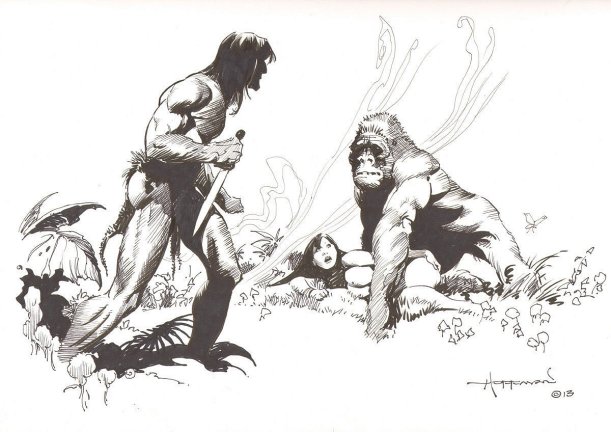
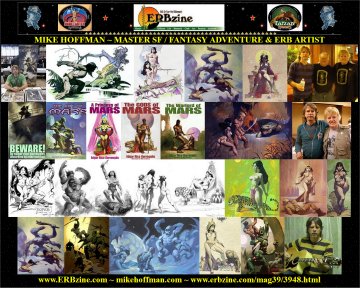
Click for full-size collage poster
![]()
Mike Hoffman Refs:
mikehoffman.com
The Muse: Mike Hoffman's
Blog about Art and Life
Mike Hoffman's
"Secrets of Fantasy Art" DVD Excerpts
Off-Site
Gallery
![]()

![]()
BILL
HILLMAN
Visit
our thousands of other sites at:
BILL
AND SUE-ON HILLMAN ECLECTIC STUDIO
ERB
Text, ERB Images and Tarzan® are ©Edgar Rice Burroughs, Inc.-
All Rights Reserved.
All
Original Work ©1996-2012/2017 by Bill Hillman and/or Contributing
Authors/Owners
No
part of this web site may be reproduced without permission from the respective
owners.